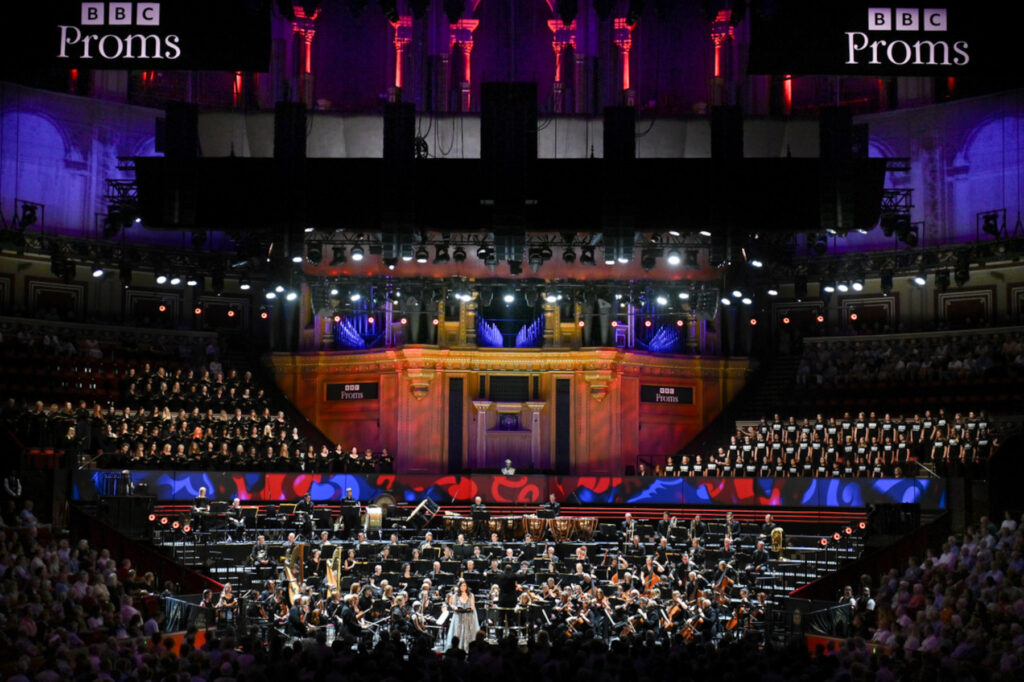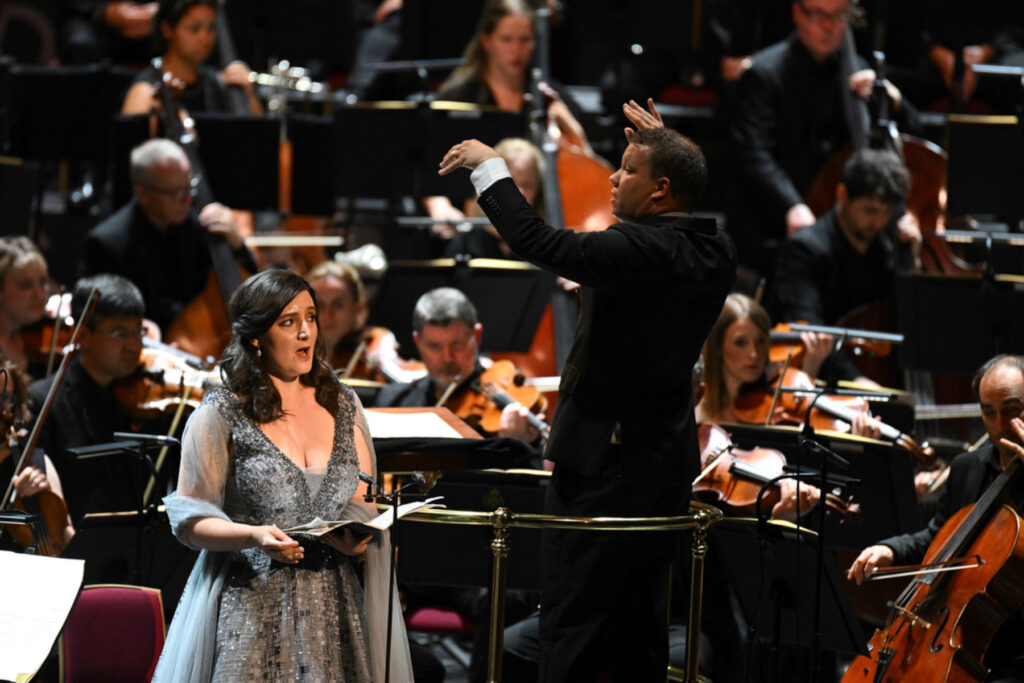It’s hard to believe live performances of Mahler’s Third Symphony – the longest symphony in the standard repertoire – only began life in the UK in 1961 when a performance was given in St Pancras Town Hall under the baton of Australian conductor Bryan Fairfax. A year later, the Royal Albert Hall hosted its first professional outing under Norman del Mar, thereafter the work has been heard at the Proms no fewer than 17 times. For Monday night’s concert, a batonless Ryan Bancroft presided over English, French and Welsh musicians for a performance that allied fervent expression to musical logic. What particularly caught the ear was the sheer commitment and joy from the BBC National Orchestra of Wales augmented by players from the Orchestre National de Bretagne. Over the work’s 95 minutes, Bancroft fashioned a sure-footed traversal embracing the sublime and the commonplace, bringing together its garish marches, rustic folk tunes and hymn-like apotheosis into a compelling whole. It may not have been an unblemished performance but nonetheless, Mahler’s ambitious and visionary fusion of the natural world along with high-minded ideals from Nietzsche was amply realised.

Bancroft met the work’s challenges head on, creating a handsome, well-judged account that grew in stature and emotional power. The opening movement was given a most resplendent sendoff, with nine horns evoking Nature’s wake-up call to herald a thirty-minute plus span of accumulating momentum and drama, each section smoothly integrated. Details registered clearly and brought well-defined pianissimos from percussion, ‘wild’-sounding cello and basses, a tender solo violin from Lesley Hatfield and glorious trombone playing from Donal Bannister, where one couldn’t wish for any more sensitivity. Elsewhere, woodwind were variously brash, jaunty and plaintive (some lovely moments from cor anglais), with string tremolos adding much to the unstoppable momentum portraying summer marching in. Overall, the playing gave vivid expression to the gravitas and jollity of Mahler’s vision, with plenty of swagger in climaxes where a shrieking piccolo and two timpanists were not afraid to come to the fore – the closing bars explosive if not floor-shaking.
The Minuet was gently indulgent, its summer flowers charmingly lit by oboe and pizzicato strings, and thence a flowing account in which playful woodwind brought much effervescence to this musical Garden of Eden. If the creatures of the forest (as Mahler once subtitled his third movement) needed a little more definition, there was no escaping the clarity of the post-horn (the BBC announcer suggesting it was a trumpet). The gallery soloist, ideally, could have sounded more distant considering the barely audible upper strings, but given potential coordination and balance issues, compromise was inevitable.

Scottish mezzo Beth Taylor, still yet to become a household name, proved to be an inspired choice for Mahler’s ‘Midnight Song’. Initially tentative, her full tone exuded warmth and compassion: an ideal combination for delivering Nietzsche’s commentary on man’s grief and longing for eternal life. Her ‘O Mensch, gib Acht’ was immaculately rendered, superbly shaped and fully expressive of the essence of its misterioso direction. She was joined by multitudinous voices from the CBSO Children’s Chorus, the CBSO Youth Chorus and women from the BBC National Chorus of Wales, for a movement where angels recount Peter’s arrival in heaven and God’s forgiveness. The singing was pleasant enough and notably lusty from the younger voices for their ‘Bimm bamm’ passages, but I missed the earthy heft of boys’ voices, which were conspicuously few. Any slight frustration was mitigated by the sixth movement – ‘What love tells me’ – where Bancroft drew playing of spell-binding beauty, almost creating a molecular disturbance in the air such was its intimacy. His steady-as-she-goes tempo was born along with tremendous conviction and imbued with a rarified beauty. Contemplation and nobility found a natural home in a rapt meditation, brass and timpani bringing its closing paragraph to a divine and triumphant resting place.
David Truslove
Mahler’s Third (BBC Proms 2025)
Mahler, Symphony No. 3 in D minor
Beth Taylor (mezzo-soprano); CBSO Children’s Chorus; CBSO Youth Chorus; BBC National Chorus of Wales (upper voices); BBC National Orchestra of Wales; Members of the Orchestre National de Bretagne; Ryan Bancroft (conductor)
The Royal Albert Hall, London, 11 August 2025
All photos © Chris Chistodoulou